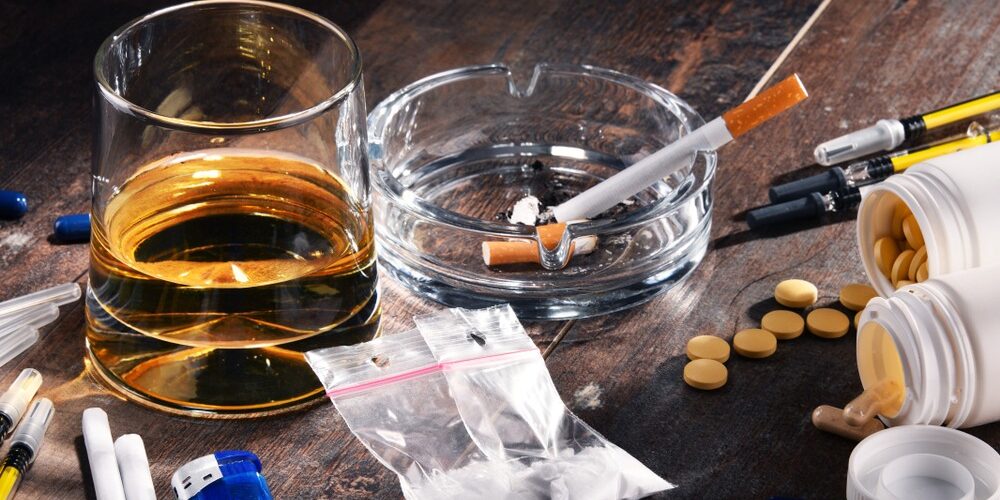Withdrawal syndrome is a group of negative practices and attitudes.
The withdrawal syndrome or (mono) is a set of physical and psychological reactions that arise after a person expires or stops consuming a substance that he has been abusing for a long time. We are talking about tobacco, alcohol, cocaine, or other narcotics.
The characteristics of the withdrawal syndrome depend on the drug that has been discontinued. They can be treated by a medical professional, can be self-diagnosed, rarely require laboratory tests or imaging studies, and heal within days or weeks. The withdrawal syndrome usually occurs between 24 and 72 hours after stopping consumption and lasts for about three or four weeks.
Physical and mental symptoms that appear after stopping or reducing the use of a drug. Symptoms can include anxiety, fatigue, sweating, vomiting, depression, seizures, and hallucinations. For example, withdrawal symptoms can take the joy out of life for the person with alcoholism and their loved ones. Within the withdrawal syndromes related to alcohol abuse, the one considered the most serious is the so-called delirium tremens.
The effect of drugs on the blood: traces of LSD, morphine, heroin, amphetamines or alcohol can remain in our circulatory system for up to 12 hours after consuming them. Beyond that time, we can already find methamphetamines (37 hours); MDMA, cocaine, barbiturates (48 hours) and cannabis (2 weeks).
Over time, the body of an addicted person becomes habituated to the substance, generating a tolerance to it. This causes the frequency of consumption and the amount of the substance to increase and the body gets used to working with it. In this way, the balanced body before dependence, learns to maintain a new balance thanks to the drug or substance.
What initially worked as a reinforcer loses that function over time and becomes something necessary for the body, avoiding the discomfort associated with its lack. With the abrupt withdrawal of the substance, the body begins to suffer the changes and symptoms.
Types of withdrawal symptoms:
- Acute withdrawal syndrome. The symptoms appear immediately after consuming the consumption of the substance.
- Late withdrawal syndrome. The consequences of consumption remain over time despite having overcome the addiction.
- Psychological withdrawal syndrome.
From the outset, the addict must be aware of the symptoms they will have if they quit the addictive substance, as well as the importance of resisting it in order to overcome the problem.
There are medications to lessen the effects of withdrawal, as is the case for people who stop smoking. For more serious addictions, there are specialized centers, such as detoxification centers, or associations that help these types of people through psychotherapies.
Recommendations:
- Do exercise. Physical activity is a great practice within an addiction detox treatment.
- Give up addiction gradually with medical supervision.
- Go to therapy with the help of counselors or support groups.
- Avoid recovering habits.
- Eat nutritious meals.
- Get plenty of rest.
- Reduce caffeine intake.
- Give up smoking.
- Antioxidants.
- Reduce stress.
- Probiotics.
- Avoid addictive replacement behaviors.
- Reevaluate your friendships and relationships.
- Change your routine.
- Vitamins and minerals, such as B complex, vitamin C, and magnesium, can help ease withdrawal symptoms and improve overall mental and physical health.
- A good sleep is also necessary.
- Drink a lot of water.
- Caution with medications.
It is important to know that the only form of prevention is not to consume substances that can cause addiction. This type of syndrome must be diagnosed, supervised and treated by a psychiatrist or psychologist.
Withdrawal: “A term used to describe a person’s physical and mental symptoms when they stop smoking or suddenly reduce their use of an addictive substance, such as opiates and opioids, nicotine products, or alcoholic beverages.”
https://www.topdoctors.es/diccionario-medico/sindrome-de-abstinencia
https://www.cancer.gov/espanol/publicaciones/diccionarios/diccionario-cancer/def/abstinencia









